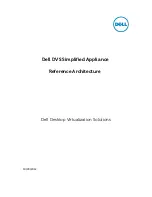
Compile Operations
110
NetLinx Studio (v2.4 or higher)
Compiler Errors and Warnings
These help topics contain information on the various types of errors and bugs common to
programming, and some techniques for solving these problems.
Note that Warnings will not automatically preclude a successful compile operation. By contrast,
Errors must be corrected before your program can be compiled.
Compiler Error Types
There are three general types of programming errors:
Compilation errors
- Errors that occur at compile time. The compiler alerts you to these
errors immediately and identifies each error and the line where it is located.
Run-time errors
- Errors that occur after the program has been compiled and loaded into
the Master Controller. These errors are caused by program statements that attempt illegal
operations.
Logic errors
- Logic errors are errors in program design and thus are the programmer's
responsibility; The master cannot tell if the program it is executing is accomplishing what
the user intends.
Compiler Errors
When the compiler finds an error during the compilation process, it informs the programmer. Most
of the time these errors occur due to a typographical error or incorrect syntax of a particular
command. Unlike warnings, errors must be corrected before your program can be executed.
Compilation errors are described below:
A "<symbol>" was expected
The compiler is expecting a certain symbol at this particular
place.
Active keyword expected
An ACTIVE keyword is not present after a SELECT keyword.
Allowed only in DEFINE_START
A keyword that is only allowed to appear in the
DEFINE_START section of the program was encountered
elsewhere.
Attempted CALL to undefined
subroutine
A CALL statement refers to a subroutine that has not been
defined with a DEFINE_CALL statement.
Comment never ends,
EOF encountered
A comment begins but never ends. Place a close comment,
* ) at the end of the unfinished comment.
Conditional compile nesting
too deep
There are too many nested #IF_DEFINED or
#IF_NOT_DEFINED conditional compilation statements. The
limit is 20 nested conditional compilation statements.
Constant type not allowed
A constant value was declared as latching, toggling, or mutu-
ally exclusive, as shown below:
DEFINE_CONSTANT
PLAY = 1
DEFINE_LATCHING
PLAY (* Error: PLAY is a constant *)
DEFINE_CALL must have
a name
DEFINE_CALL must have a name after it. For example,
DEFINE_CALL 'VHS'.
DEFINE_CALL name
already used
The name of the DEFINE_CALL has already been used. This
name cannot be the same as an already declared identifier of
any type.
Summary of Contents for NETLINX STUDIO V2.4
Page 1: ...instruction manual Software NetLinx Studio v2 4 or higher ...
Page 16: ...NetLinx Studio v2 4 or higher 4 NetLinx Studio v2 4 or higher ...
Page 32: ...The NetLinx Studio v2 4 Work Area 20 NetLinx Studio v2 4 or higher ...
Page 44: ...Working With Workspace Files 32 NetLinx Studio v2 4 or higher ...
Page 88: ...Working With Systems and System Files 76 NetLinx Studio v2 4 or higher ...
Page 118: ...Programming 106 NetLinx Studio v2 4 or higher ...
Page 152: ...Working With Online Devices 140 NetLinx Studio v2 4 or higher ...
















































